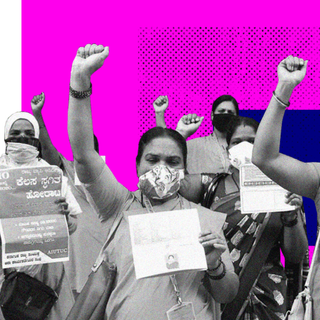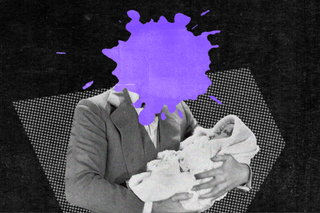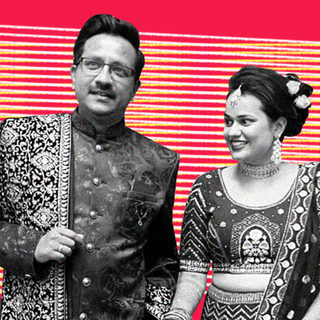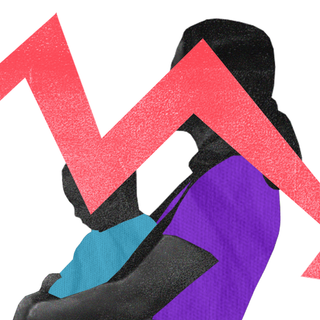
Father’s Last Name Should Not Automatically Pass Down to Children, Rules Italian Court
The ruling has consequences not only for children, but also for women whose identity will be less subsumed by their husbands.

The holy grail of all traditions lies in the inflated corpus we know as patriarchy. Be it Italy or India, look anywhere, and the patrilineal norm of naming children after the father’s family dominates. We inherit our father’s surnames by virtue of our culture and the system that insists that the male line is the locus of a family’s name and material possessions.
But an Italian court recently found this reasoning wanting. The Constitutional Court in Rome ruled a baby should be assigned surnames of either both the parents when they are born — or be given a new last name unrelated to both the partners. This tradition of only sticking to the father’s last name, alas, is “discriminatory and harmful to the identity” of a child, the court said, as reported by Reuters. The court effectively overturned a deeply embedded cultural, centuries-old convention rooted in patriarchy.
Globally, this practice has a sturdy precedent. In many Spanish-speaking places — like Spain, Puerto Rico, Mexico — children alreadyreceive the last names of both parents. The question of who gets to pass down their last names is a legally and culturally contested conversation. Deborah Anthony, a professor of legal studies at the University of Illinois at Springfield, spoke of how “the mother almost always loses.” “There’s this implicit understanding that having the father’s last name is inherently in the child’s best interest,” she told The Atlantic.
This is a doctrine based on the patriarchal assumption that a father’s surname would deepen the family institution or provide children with more financial security later in life. Or, it is the easiest way to ensure the family name’s legacy.
These are ideas fraught with regressive sentiments, and are enforced by legal mandates. So court rulings that recognize the power imbalance become critical. For now, the country’s parliament will have to pass legislation to implement the court’s decision.
Related on The Swaddle:
How the Indian System Keeps ‘Single’ Women Dependent on Others
One may be tempted to ask what truly is in a name. But even Shakespeare would agree today that names matter. For one, the name is the most immediate sense of personhood one grows up with. “Both parents should be able to share the choice of a surname, which is a fundamental element of one’s personal identity,” the court wrote. In a study, research psychologist David Figlio of Northwestern University in Illinois, showed how a baby’s name can have an enduring effect on the child’s behavior and understanding of oneself — for better or for worse.
Then, the insistence on including the mother and father’s names is an act both subversive and fundamental. Several anecdotes — documented and undocumented — would show how mothers struggle to assert their rights as a parent solely because the child doesn’t inherit their name. Mothers, despite often being primary caregivers, are thus devalued and dehumanized — an extension of how the female partner in traditional marriages is expected to take on their “new” family’s identity. This dismissal permeates into the very system; most forms mandate a “father’s name” or “husband’s name,” leaving no room for a woman to showcase her humanity.
The ruling, therefore, has consequences not only for children but for women entering heterosexual marriages themselves: their identity will be less subsumed by their husbands, and the power to retain and pass on their natal names to their children also gives them an equal stake in their child’s identity.
“Parents have equal responsibility and equal rights, no more discrimination that penalizes mothers and children,” said Laura Boldrini, an MP for the Democratic Party. Another minister wrote in a tweet: “[Mothers] will have the same dignity as that of the father.”
Related on The Swaddle:
Caste Surnames Should Not Be Revealed in Civil Services Interview, Government Report Says
The saga of last names in India in particular is tinged with class and caste prejudices. “Names are so strongly tied to identity and life circumstances that they function as a sort of shorthand within groups and societies,” Sanjana Ramachandran wrote in Fifty Two. “People subliminally judge names that correlate with lower socioeconomic backgrounds as belonging to lower achievers, while the reverse bias benefits those with ‘high-status’ names, further cementing disparate life outcomes.”
A reportfound that over 90% of India’s surnames are reflective of one’s castes; so much so that people continue to derive meaning and assert the status quo through their last names. In that sense, including any parent’s last name — or for that matter, names in itself — are deeply exclusionary premises.
But these are cultural paradoxes we are engaging with as we go along. This doesn’t undo the resistance achieved by questioning a patriarchal culture that assumes a father’s last name to be the irrefutable standard.
We just have to think beyond the convention; people can use both names or come up with a new one. Or have no last names at all. These are messy things, with no tidy answers to concerns of identity and power imbalance. But that doesn’t mean a patriarchal default thrives unchallenged.
Saumya Kalia is an Associate Editor at The Swaddle. Her journalism and writing explore issues of social justice, digital sub-cultures, media ecosystem, literature, and memory as they cut across socio-cultural periods. You can reach her at @Saumya_Kalia.
Related


The Media’s Obsession With IAS Officer Tina Dabi’s Marriage Is Rooted in Casteism
